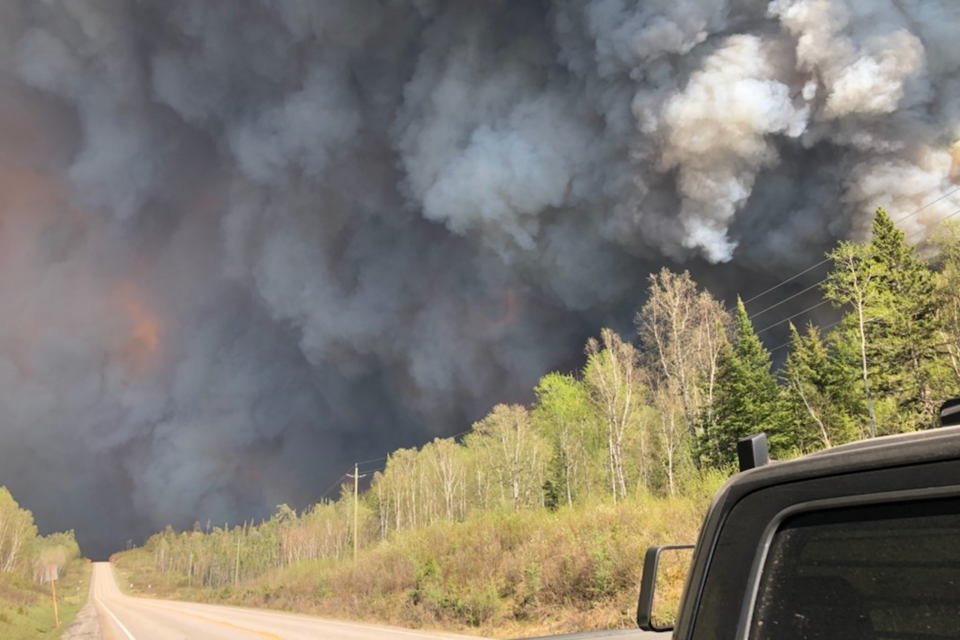The local air pollution caused by nearby forest fires has triggered warnings today from both Sault Fire Services and Algoma Public Health.
The bottom line: be careful out there — and don’t call 911 unless it’s an emergency.
“Sault Fire Services has received a significant number of inquiries regarding the substantial air pollution caused by smoke resulting from forest fires,” the fire department says, in a statement posted on the city’s website. “Fire Services is aware of the situation and would like to emphasize to residents the importance of contacting 911 exclusively for emergencies.”
The Ministry of Natural Resources and Forestry has implemented a fire ban across Sault Ste. Marie and surrounding areas, and it will remain in effect until further notice.
“Consequently, Fire Services will not be granting or issuing permits during this period,” the statement continues. “Any individual found engaging in burning activities during the ban will be liable to face penalties.”
Meanwhile, Algoma Public Health is warning people — especially the elderly and young children — about the negative health effects linked to air pollution.
“Smoke plumes from these active fires will result in deteriorated air quality across our region today,” their statement says. “Algoma Public Health cautions residents of the Algoma district that air pollution from wildfire smoke can be harmful to health and aggravate heart or lung conditions.”
Common, mild symptoms of smoke exposure include sore and watery eyes, runny nose, scratchy throat, mild coughing, or headache. People at higher risk may have more serious symptoms, like shortness of breath, severe wheezing or coughing, chest pain, or heart palpitations.
Anyone with these severe symptoms should seek prompt medical care, APH says.
Those most at risk today are:
- Children
- Elderly
- Pregnant women
- Anyone with a heart or lung condition
- Anyone doing strenuous exercise or work
Here are some other ways to reduce your risk during possible wildfire smoke exposure:
- Limit or avoid outdoor activity and strenuous physical activities
- At home and in vehicles, keep your windows closed and set the ventilation system to recirculate
- If you have asthma, COPD, or other breathing problems use your medication as prescribed by your doctor, and seek medical care if needed
